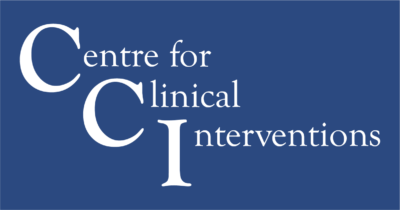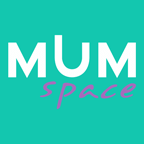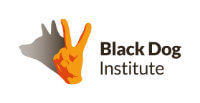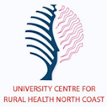Depression is one of the most prevalent mental health conditions affecting adults globally1. While traditional therapy and medication continue to be cornerstone treatments, the emergence of digital mental health (DMH) solutions has introduced new, accessible avenues for managing depression. Notably, digital Cognitive Behavioural Therapy has demonstrated strong evidence of effectiveness, performing comparably to face-to-face therapy in clinical trials2, 3, 4. In this blog, we’ll take a deep dive into the digital treatment options available to Australian adults for managing depression.
Depression Programs
CBT-bare the foundation of digital therapy for depression. These programs break down the principles of CBT into manageable modules, targeting specific aspects of depression, such as negative thought patterns, behavioural activation, and emotional regulation. These programs can be completed independently, allowing for self-guided progress, or with support from a personal practitioner or an e-therapist, providing tailored guidance as needed.

MindSpot
The Wellbeing Course (Age 25-65)
https://www.mindspot.org.au/treatment/our-courses/wellbeing-course/
MindSpot offers mental health screening, information and online CBT treatment programs with optional guided support for adults with anxiety & depression, OCD, PTSD, chronic pain, and chronic conditions. The Wellbeing Course assists adults aged 26-65 manage worry, stress, anxiety and low mood.

THIS WAY UP
Anxiety and Depression Program, Mindfulness-Enhanced CBT Program, Depression Program
THIS WAY UP provides self-guided or own-clinician-supported screening and CBT or MBCT psychological treatment and wellbeing programs for adults with depression, anxiety disorders, OCD, PTSD, insomnia or chronic pain. For depression specifically, THIS WAY UP offers a Depression Program, a Mixed Anxiety and Depression Program, and a Mindfulness-Enhanced CBT Program.

Mental Health Online
Depression Online program, Depression-Anxiety program
https://www.mentalhealthonline.org.au/programs
Mental Health Online provides online screening (ePASS), VR mindfulness tools, and 12-week CBT treatment programs with optional guided support for depression, anxiety conditions, OCD and PTSD (18+). They offer two depression-specific courses: the Depression Online Program and a Mixed Depression-Anxiety Program.

e-couch
Depression Program
e-couch offers CBT and IPT self-directed programs for symptoms of depression, generalised anxiety, and social anxiety, and for wellbeing support through separation/divorce or bereavement/loss (16yrs+). The e-couch Depression Program provides information about depression and teaches evidence-based approaches to help reduce depressive symptoms and increase quality of life.

Moodgym
Moodgym is an interactive, self-guided CBT program for the prevention and management of symptoms of anxiety and depression.
Practitioner Required
Some CBT-based treatments require practitioner guidance to ensure users receive the full benefit of the therapy. These programs may involve interventions that necessitate professional facilitation or the use of physical materials, such as workbooks, that need to be worked through systematically under the supervision of a trained clinician.

Centre for Clinical Interventions
Depression Resources
https://www.cci.health.wa.gov.au/Resources/For-Clinicians/Depression
The Centre for Clinical Interventions provides digital CBT workbooks and materials for clinicians to support their clients or patients with a range of mental health issues, including eating and body image issues, bipolar, anxiety, and depression. There are a number of resources available for the treatment of depression, including information sheets, worksheets and the Back from the Bluez workbook.
Specific Populations
Depression is a complex and multifaceted condition that can be influenced by a wide range of factors, including age, life stage, cultural background, and personal circumstances. For this reason, targeted treatment programs that address the specific needs of different population groups are often more effective than one-size-fits-all approaches. Tailored digital programs can focus on the unique stressors and challenges faced by these groups, making the treatment more relevant, relatable, and effective.
Young adults (18-25)

MOST
MOST is a peer and professional web-chat support service with modules to help young people (12-25yrs) with depression, anxiety or sleep problems. Available through participating youth mental health services in VIC, QLD, NSW, ACT and WA.

MindSpot
Mood Mechanic Course (18-25)
https://www.mindspot.org.au/treatment/our-courses/mood-mechanic-course/
MindSpot offers mental health screening, information and online CBT treatment programs with optional therapist guided support for adults with anxiety & depression, OCD, PTSD, chronic pain, and chronic conditions. The Mood Mechanic Course assists young adults aged 18-25 manage depression and anxiety.
Older Adults

MindSpot
The Wellbeing Plus Course (Age 60+)
https://www.mindspot.org.au/treatment/our-courses/wellbeing-plus-course/
Mindspot provides mental health screening, information and online CBT treatment programs with optional therapist guided support for adults with anxiety & depression, OCD, PTSD, chronic pain, and chronic conditions. The Wellbeing Plus Course assists adults aged 60+ manage worry, stress, anxiety and low mood.
Perinatal

Mum2BMoodBooster
https://www.mumspace.com.au/online-treatments/
Mum2BMoodBooster is a CBT, self-guided screening (EPDS) and treatment program to support women recovering from antenatal depression and anxiety. Includes a clinician portal and free automated SMS support for users.
MumMoodBooster
https://www.mumspace.com.au/online-treatments/
MumMoodBooster provides screening (EPDS) and self-guided CBT treatment program for women with postnatal depression and anxiety. Includes a clinician portal and automated SMS support for users.

THIS WAY UP
Pregnancy Anxiety and Depression Program, Postnatal Anxiety and Depression Program
https://thiswayup.org.au/programs/perinatal-mental-health-programs/
THIS WAY UP offers self-guided or own-clinician-supported screening and CBT or MBCT psychological treatment and wellbeing programs for adults with depression, anxiety disorders, OCD, PTSD, insomnia or chronic pain. This way up has two perinatal programs, the Pregnancy Anxiety and Depression Program and the Postnatal Anxiety and Depression Program.
Health workers

National Emergency Worker Support Service
https://www.blackdoginstitute.org.au/education-services/national-emergency-worker-support-service/
The National Emergency Worker Support service provides screening (PHQ-9, GAD-7, PTSD-8) and trauma-specialist support pathways for emergency service workers and volunteers to manage the impact of trauma experienced at work (18+ yrs).
1 https://www.who.int/news-room/fact-sheets/detail/mental-disorders#:~:text=In%202019%2C%201%20in%20every,the%20most%20common%20(1).
2 Andrews, G., Basu, A., Cuijpers, P., Craske, M. G., McEvoy, P., English, C. L., & Newby, J. M. (2018). Computer therapy for the anxiety and depression disorders is effective, acceptable and practical health care: an updated meta-analysis. Journal of anxiety disorders, 55, 70-78.
3 Carlbring, P., Andersson, G., Cuijpers, P., Riper, H., & Hedman-Lagerlöf, E. (2018). Internet-based vs. face-to-face cognitive behavior therapy for psychiatric and somatic disorders: an updated systematic review and meta-analysis. Cognitive behaviour therapy, 47(1), 1-18.
4 Andersson, G., Titov, N., Dear, B. F., Rozental, A., & Carlbring, P. (2019). Internet‐delivered psychological treatments: From innovation to implementation. World Psychiatry, 18(1), 20-28.





